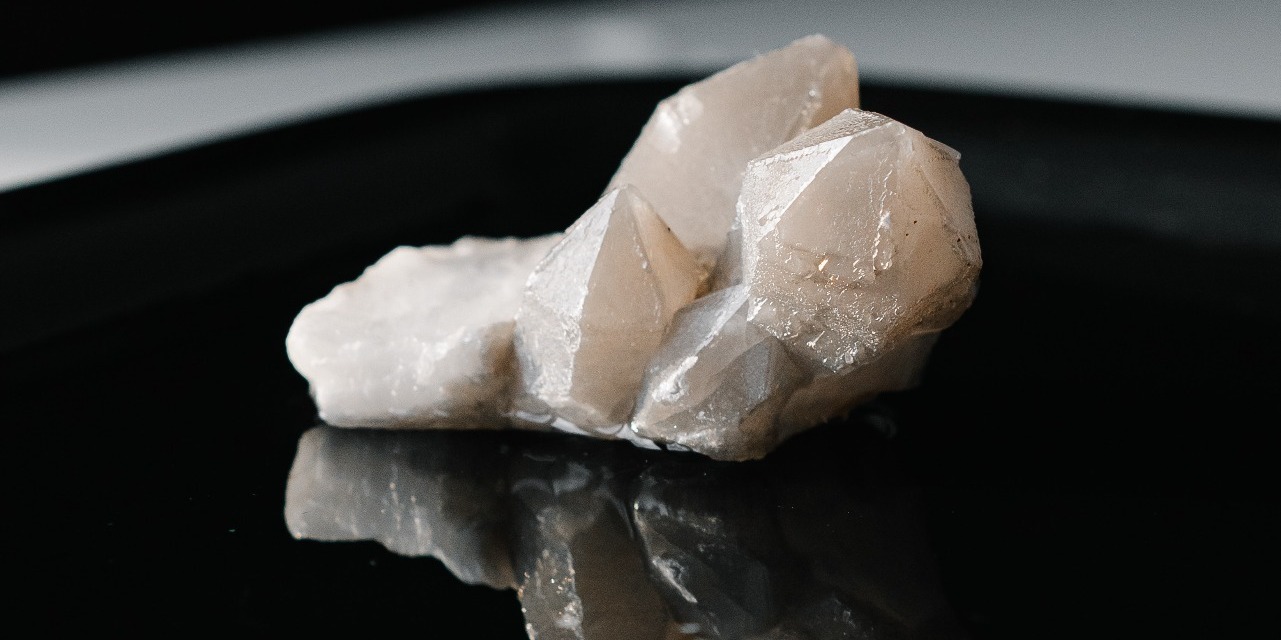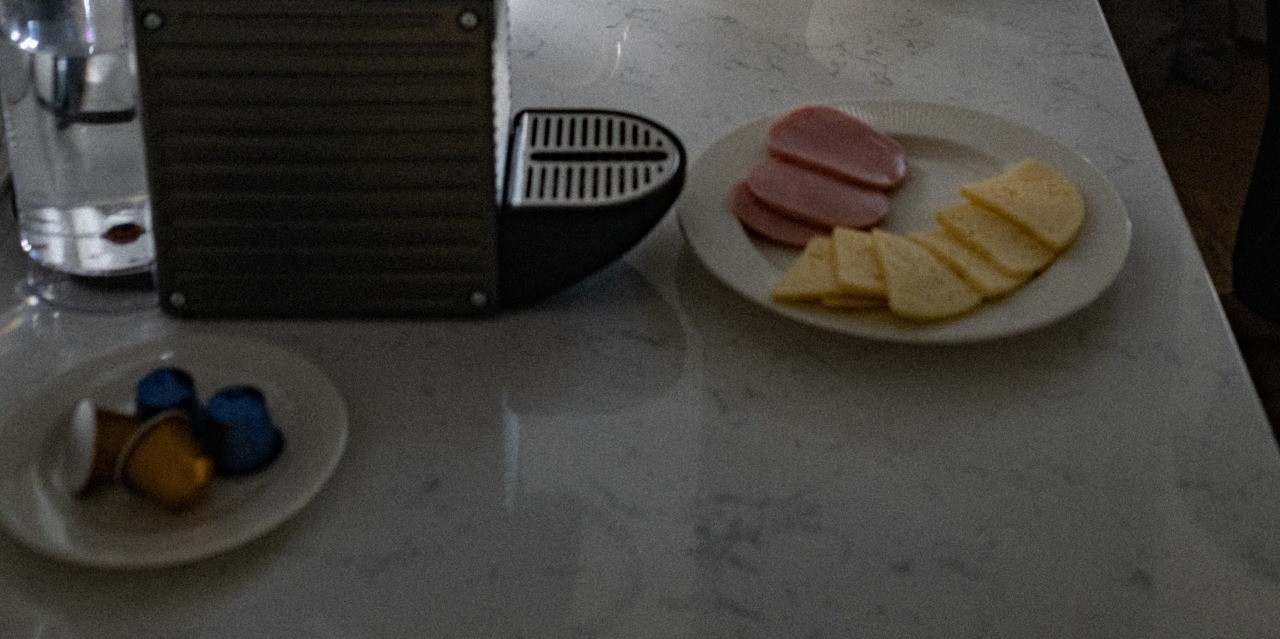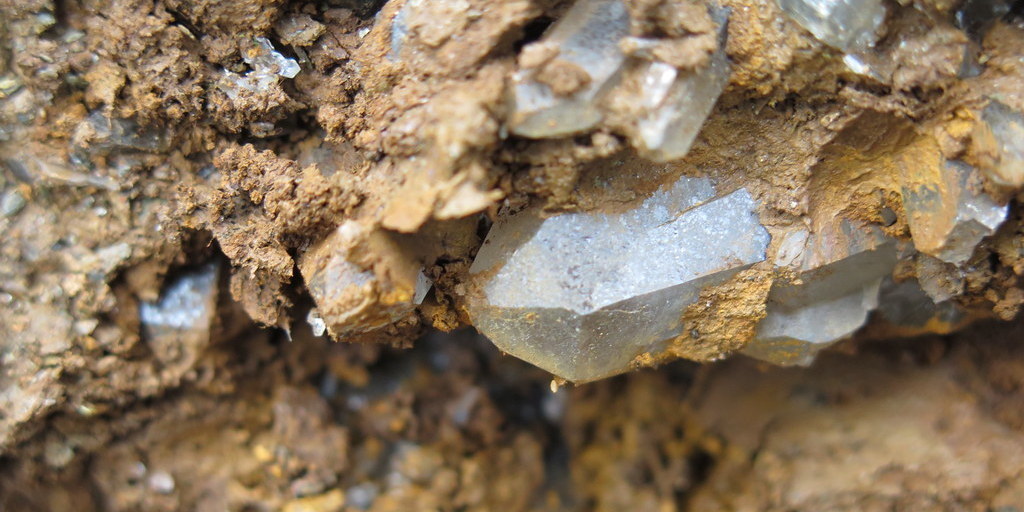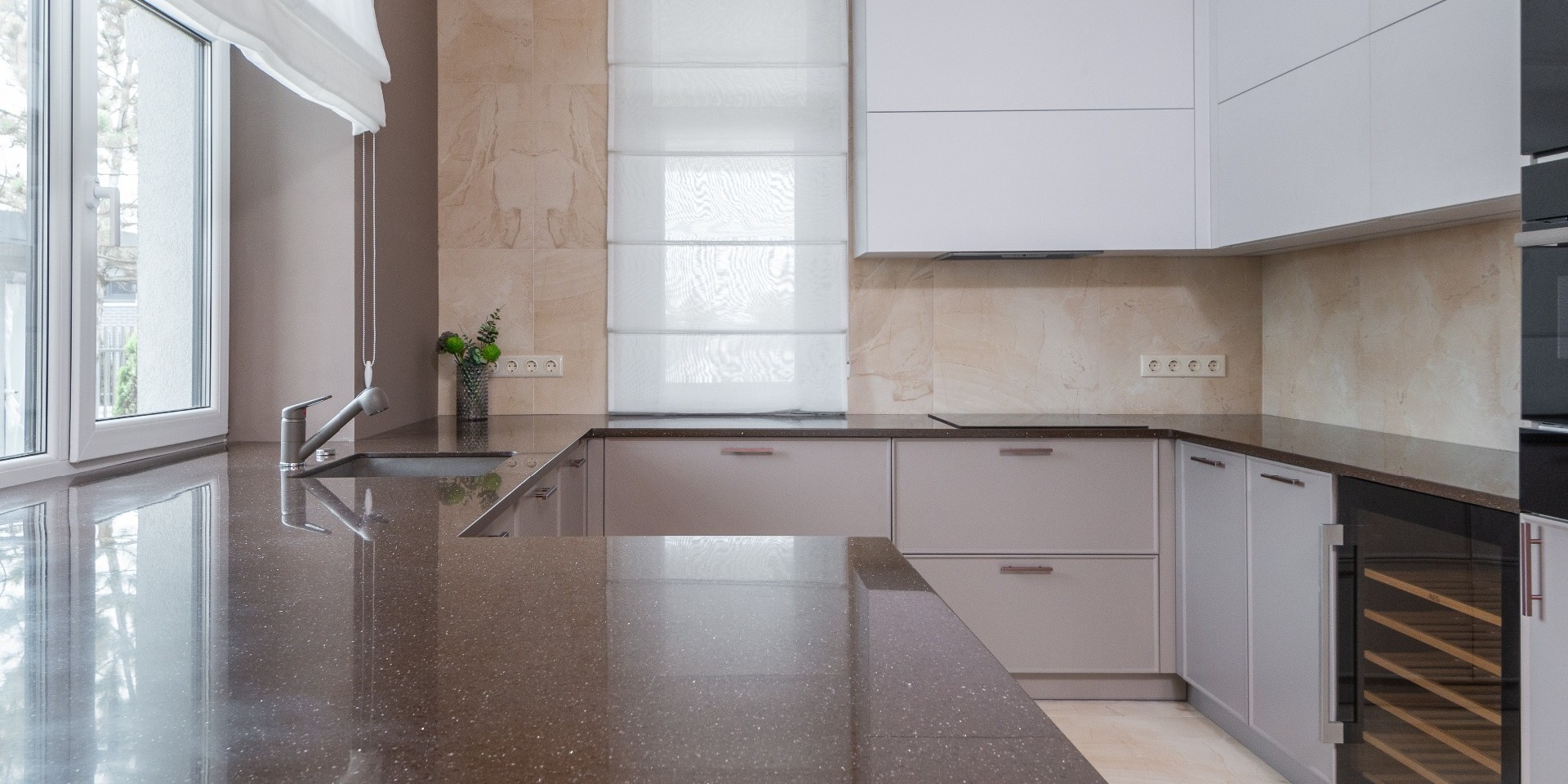How is Quartz Formed? The Science Behind the Material
Posted on 16th February 2022 at 12:50
What Are Quartz Countertops and Are They Made of Natural Stone?
Before choosing a kitchen countertop, you may have the question, how is quartz formed?
Quartz countertops are engineered stone rather than a natural stone. The slabs are created by combining roughly 90% ground natural quartz with about 10% other materials, although exact percentages can differ slightly based on the specific quartz.
Quartz countertops have grown in popularity as homeowners discovered they can compete with other natural stone countertops in every way with their variety of elegant, sleek, and modern designs. Unlike natural stones, such as granite, with quartz, you can create nearly any design and colour with pigments and materials, such as recycled glass and metal flecks. In contrast to natural stone kitchen countertops, which have natural veins and colours that can't be changed, quartz is very adaptable.

Where Does the Word 'Quartz' Come From?
There are many possibilities of where the word 'quartz' is derived from. Some people believe it comes from the Polish words 'kwardy' and 'twardy', meaning hard or from an old German word 'querkluftertz', referring to whitish vein quartz. The name quartz may also be derived from the ancient Greek word 'krustallos', meaning ice, because the Greeks thought it was ice created by the gods.
How Is Quartz Formed?
Quartz is one of our most common and useful minerals, made of two chemical elements found on Earth: oxygen and silicon. Atoms of oxygen and silicon join together to build crystals and form to make one of the hardest common minerals, quartz. Minable deposits are found throughout the world in mountaintops, beaches, and rivers. Most white, sandy beaches are made of quartz eroded out of rock.
What Is Silica and What Does It Do?
Silica is a natural compound found all around us. It is an acidic oxide that forms silicate salts with aluminium, magnesium, and other metals. Silicates gave us our first tools made from flint, sandstone, and granite for building materials and clay for our pottery and bricks. Silicon dioxide is the main component of sand used to make glass and concrete. Pure silicon dioxide is found in quartz, where the silicon and oxygen atoms are arranged in a diamond-like pattern.
Is Quartz a Mineral or a Rock?
There are three main types of rock: sedimentary, metamorphic, and igneous rock. Quartz is a mineral that occurs in nearly all types of rock. Quartz formation occurs through cooling silicon dioxide which dissolves in water, like sugar in tea, at high temperature and pressures. When the temperature or pressure drops, the solution becomes saturated and quartz crystals form.

How Are Quartz Countertops Made?
Quartz minerals are mined and then they are ground into a mass of fragments or particles which is called an aggregate. The quartz aggregate is then fused with resin and other synthetic materials, such as polymers and pigments, to bind the rock under intense pressure and heat to form a beautiful quartz slab.
How Are the Raw Materials Mixed Together?
To do this, initially, the raw materials that make up the quartz countertop are combined in large industrial-sized mixing bowls. Depending on the colour and look of quartz countertops, certain pigments and stones may be integrated into the design.
As the raw ingredients of quartz countertops are mixed together, they form a paste-like consistency similar to the consistency of damp sand. After the ingredients bond together, the fabricators can move on to the next step in the process. Pigments are often added to give the countertop colour and, in some cases, recycled glass or metal flecks are added to the design.
How Is Quartz Formed?
The quartz mix goes into a large mould, designed to shape the raw materials into flat, rectangular slabs. Once the quartz is in the mould, it is smoothed out to ensure there are no gaps where air can get in. The quartz slabs must be non-porous and airtight.
Once in the mould, the material is compressed by a large machine to form the quartz slabs. All the tiny pieces of quartz minerals and resin are forced together under immense pressure so they become one large slab of quartz of about 2-3 cm thick.
Industrial vacuums suck any air pockets out of the quartz material to make sure that the slab is airtight and non-porous. Then, vibrations are used to reduce air pockets in the surface of this engineered stone. This process helps to shake out any loose stone and really harden the construction to make the quartz slab as solid and airtight as possible. After this process, the quartz is dried and baked in hot machines using heat and pressure to fully solidify the quartz and ensure the surface is smooth.
Because it’s a man-made stone, extra effort is put into making the surface as practical as possible for quartz stone kitchen top usage because it's important that bacteria doesn’t have any pockets of air to hide in or liquids can't bleed into the quartz countertops.

The Finishing Touches
After the slabs are dried and heated, the quartz is ready for the finishing touches. This often involves large machines polishing the slabs to a high-sheen. After the polishing process, if necessary, a stone fabricator will finish with hand-polishing.
The quartz is then cut to size of the exact measurements of your kitchen. An experienced fabricator uses a very precise cutting process with special tools to cut the quartz countertops to the correct size. Here, at Granite Unlimited, we take into account sink basins and the various different styles of countertop edges to meet your requirements and give you a truly custom-made and fit countertop.
Qualities of Quartz Countertops
Most manufacturers have quartz designs that look almost identical to granite and marble, but come with durability and low-maintenance incorporating the veining and uniqueness of natural stone.
So, now that you know the science behind the question 'how is quartz formed?', you can make an informed decision for what kitchen countertop to choose. if you're not sure what you're looking for but want something to match your existing kitchen, take a look at our gallery and get in touch with use today for expert advice.
Share this post:


